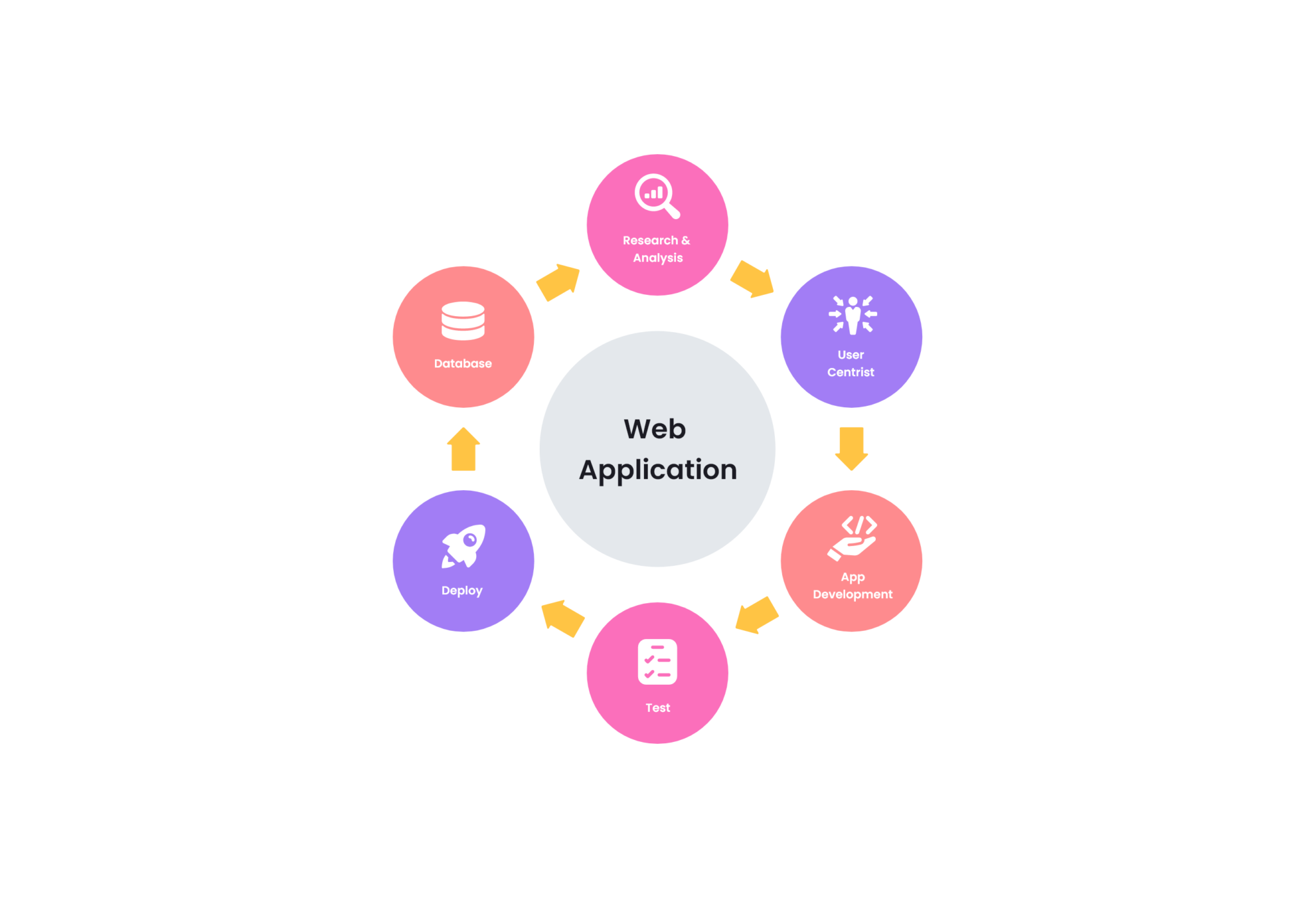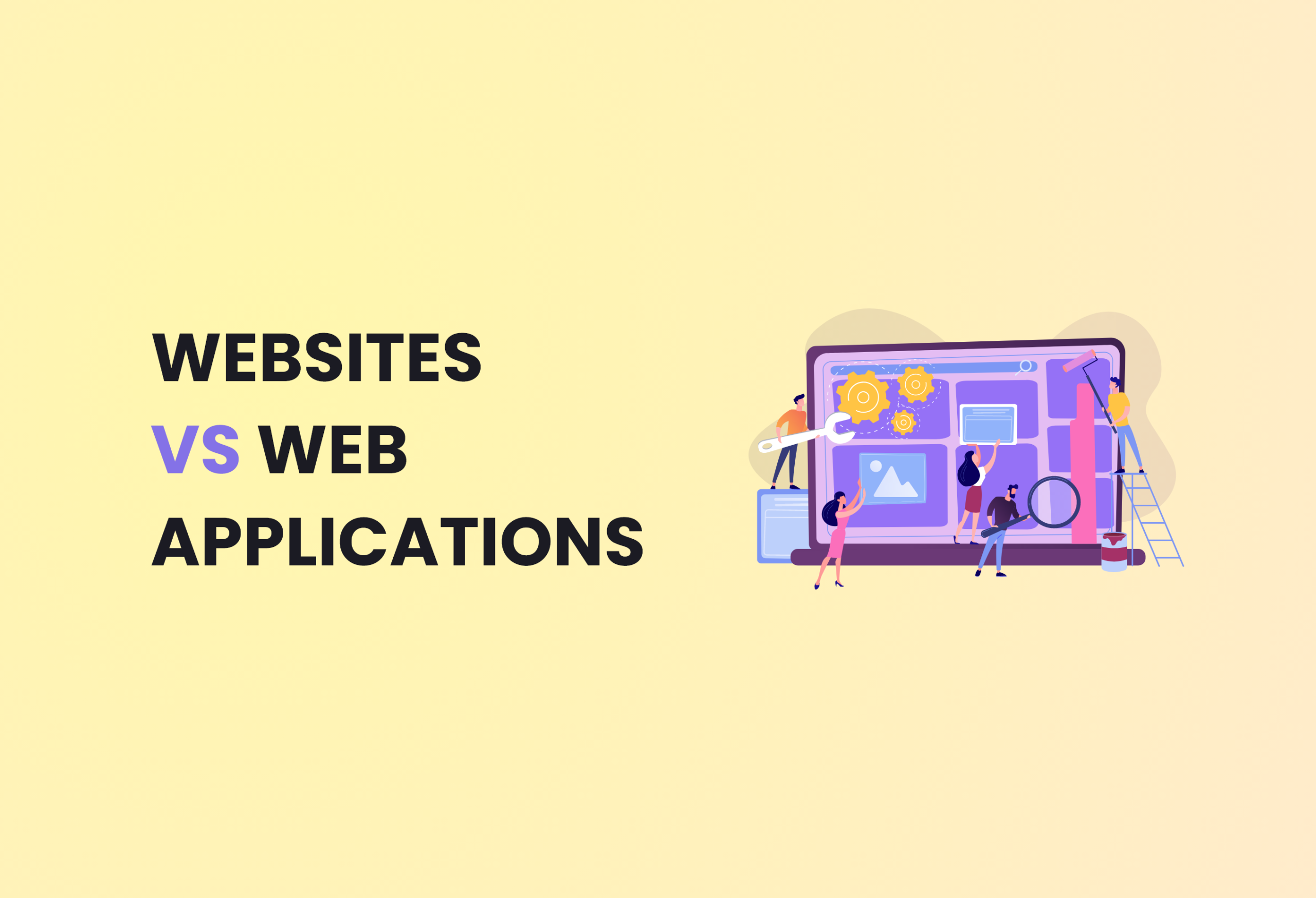The website vs. web application debate is pervasive in the IT industry, and for a good reason. You can access both via your browser. Both need an internet connection, and in 2021, most of the websites are responsive, and some of the web applications are also trying to support mobile responsiveness. To determine which one is best for your requirements in the year 2021, you need to know how to identify the differences between them.
As a software development firm specializing in mobile app development and web app development, we often discuss with our clients the purpose of each and explain how to distinguish between them. That is why we decided to provide a comprehensive guide for you in which we highlight the main distinctions between these two. Once you know a few tricks, it’s quite simple to tell them apart. Let’s get started with the website vs. web application debate.
What is a Website?
A website is a collection of content that a web server makes accessible and may be viewed using a web browser. It often consists of many web pages (such as Home, About Us, Products, Contact, and so on) that are identifiable by a single domain name. Its main function is to give information to users. On the website, we can find text and different multimedia assets such as photos and videos. It is a fixed and unchanging location on the Internet where users can only see published content but not do anything further, such as creating an account or purchasing.
When do you need a website?
A website is an efficient way to showcase your products and services. It may assist you in the following ways:
-
- Attract new customers
-
- Enhance brand recognition
-
- Increase your sales.
-
- Get new leads
-
- Provide critical information such as business information, contact information, a pricing list, special deals, and so on.
Building a website is ideal for businesses that do not need complex functionality and prefer basic yet effective solutions. For example, if you want to build an informative page that contains basic information, such as:
-
- About Us
-
- Contact information
-
- The price list
-
- Images of the items for sale
-
- Services provided

What is a Web App?
A web application is a software or a program that runs in a browser and offers a particular service to the user through an interface. For example, Google Docs, which is one of the most popular and used web applications today. Unlike a website, a web application is mainly targeted at getting a particular function done, such as making a reservation, paying, editing a document, etc.
You can easily identify a web application if it has the following characteristics:
-
- Making an account
-
- It helps you manage your playlist
-
- Banking applications that help us transfer funds
-
- Booking hotels
-
- Chatting
Web applications gained popularity as a result of the Software as a Service (SaaS) trend. They are capable of so much more than just informing, and they can even stand alone as a service. Most web applications have a free model where users can try it out with limited features or for a limited time, and if the service is good, they can switch to premium.

When Do You Need a Web App?
A web application is a tool that opens up a world of possibilities for you. For example, your business must share information and complete transactions with their target customers. And the web application can be a great and low-cost platform for this, allowing you to gather and retain all required data while also presenting the results to users. So, users can engage with your business through web apps such as shopping carts or content management systems.
Popular Web Application Types
Booking apps – enable reservations for lodging and visits, as well as payments for reservations made (Booking.com)
ERP systems – applications that are intended to organize tasks, such as storage or supply (Netsuite)
Social media services – enable users to establish accounts, networks, and communicate with one another (Facebook)
Medical and healthcare systems – provide for the long-distance patient and clinician communication, management of a patient’s electronic medical data, remote admissions, medication prescribing, and other functions (Hospital Information System)
E-learning platforms – utilized to conduct exercises, repetitions, and assessments, as well as to learn and manage progress (Udemy)
Online shops – allow for shopping, auctions, and other sales transactions (Amazon)
Marketplaces – are used to post different offers for both purchases and, among other things, job postings (OLX)
CRM (Customer Relationship Management) systems – apps that organizations use to enhance their workflow, customer management, and other functions. (Salesforce)
Content management systems (CMS) – used to build basic websites or blogs and manage digital content. Although it seems to the end-user to be a website, CMS enables far more convenient and sophisticated content management (WordPress).
Treinetic’s Final Thoughts
From the above website vs. web application comparison, we can see that building a website helps you brand your company. The most important qualities of a good website are superiority and relevant web content. A bespoke web application, on the other hand, is specially created for your business’s requirements. Therefore, it is fully flexible and scalable to match the needs and expansion of your business. And the essential characteristics of a successful web application are that it is cloud-hosted and highly scalable.
If you need to create a web application, contact Treinetic, your trusted web application development partner. We have experience working with many foreign companies providing solutions for their customers. We know what to look for and gather information to develop the best solution to build your web application.

